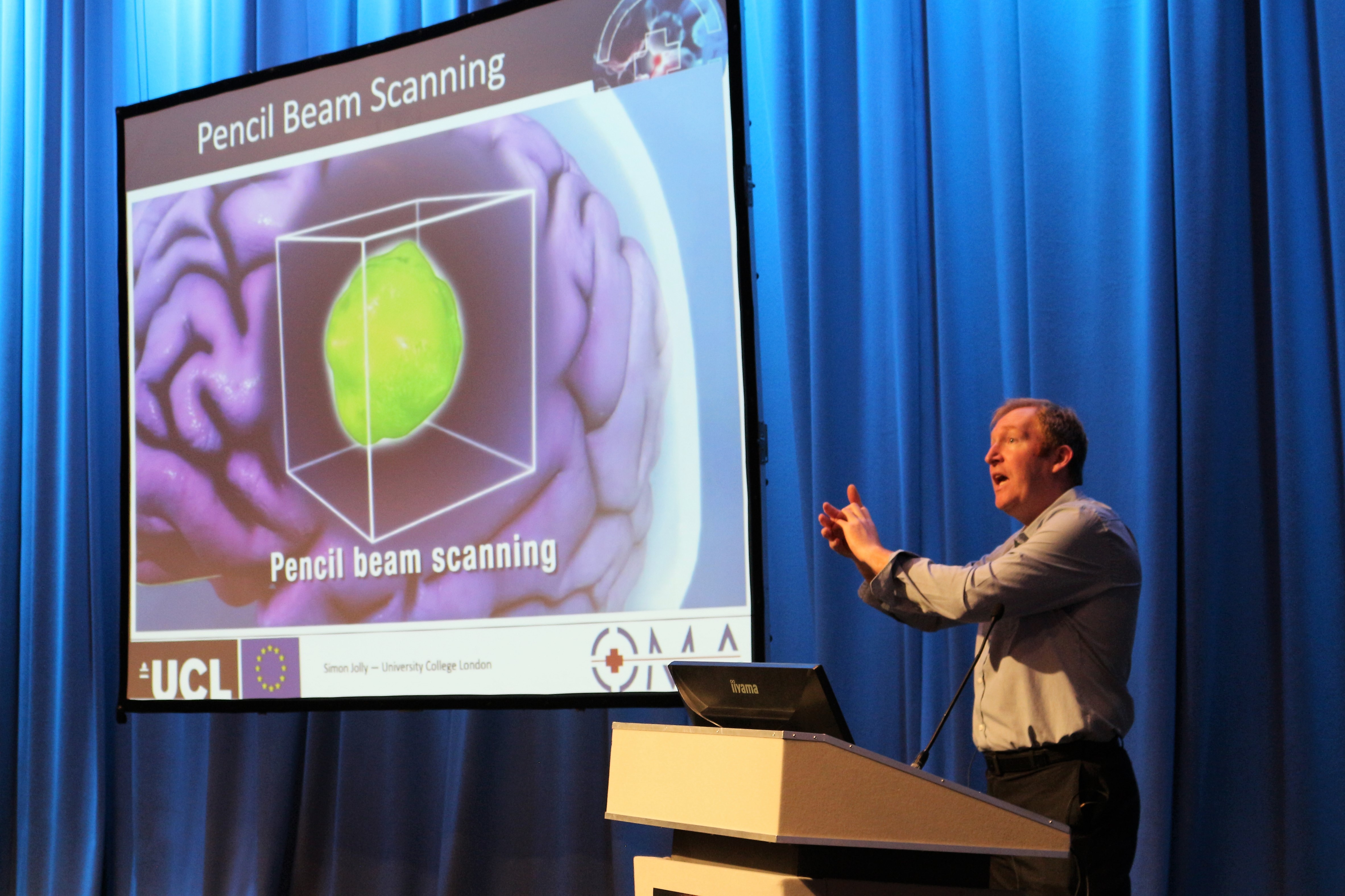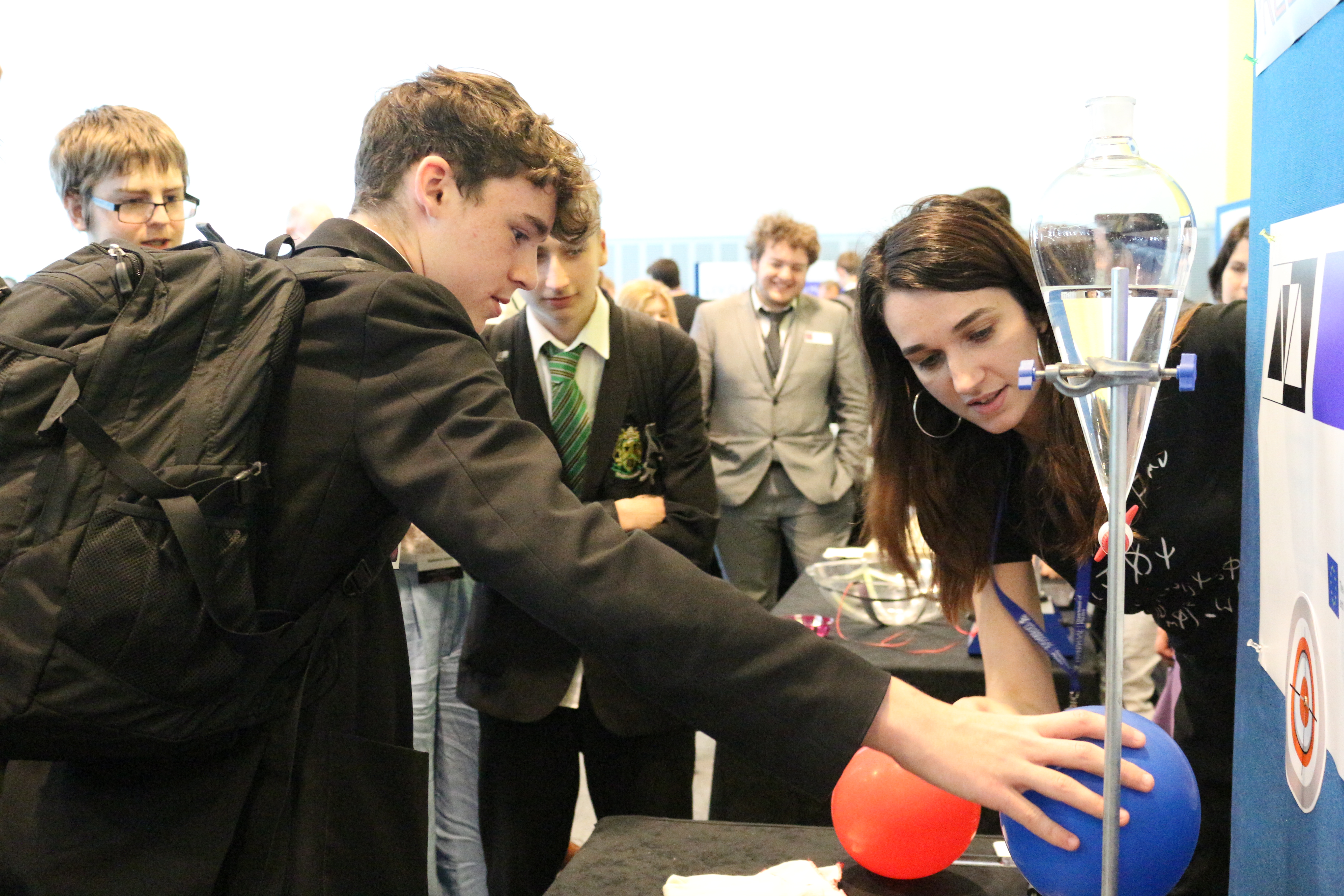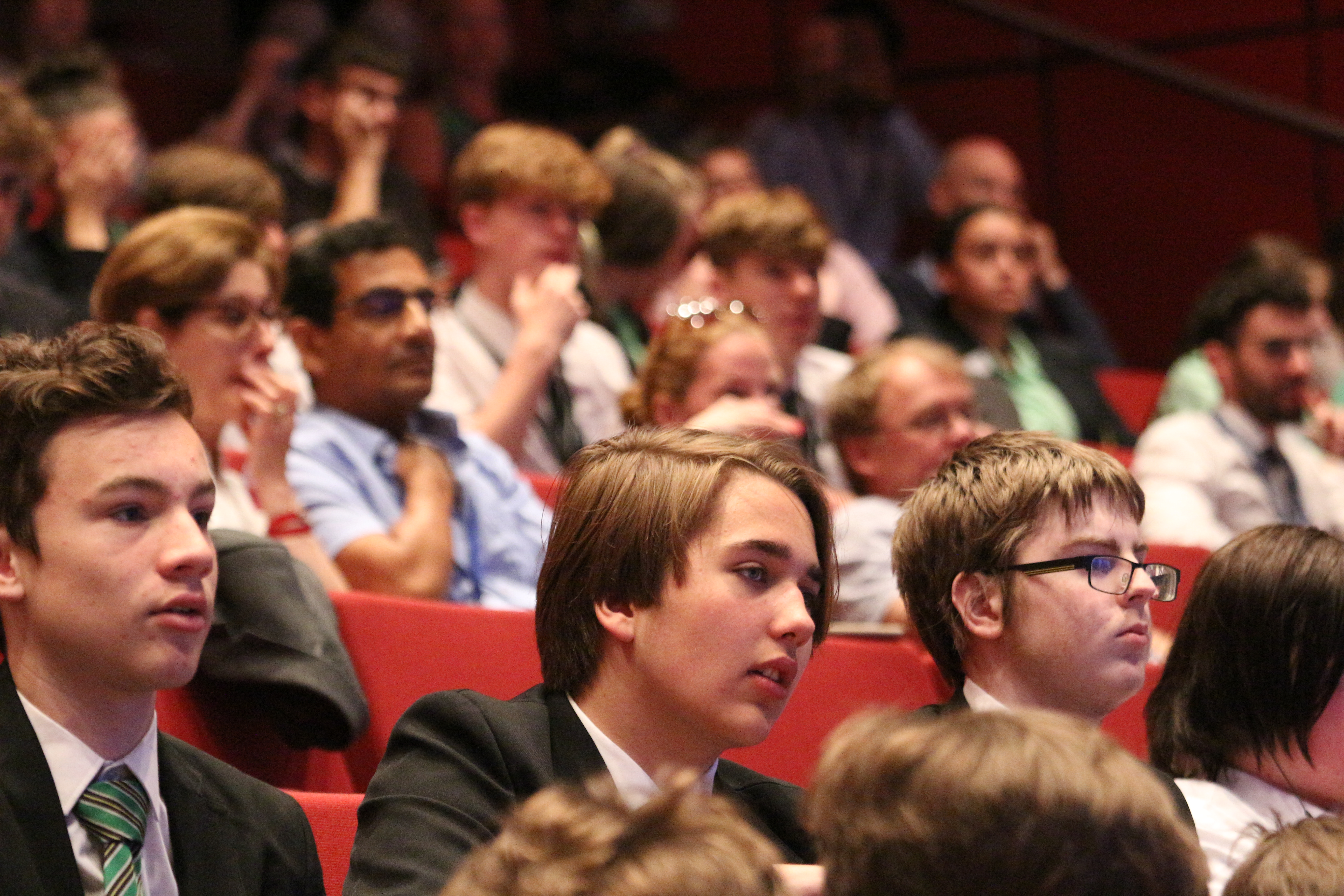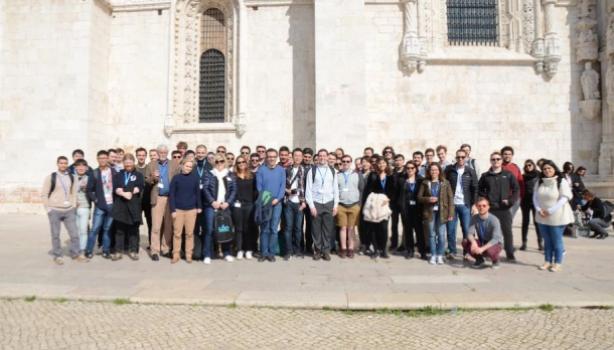Professor Welsch and experts from Amsterdam Scientific Instruments discussing during the event. (Image: University of Liverpool)
Particle accelerators have numerous applications across many fields including fundamental research, healthcare, electronics, environment and energy… However, despite the vast benefits of accelerators for our everyday life, the whole research area is still nearly unknown to the majority of people.
Developing and building a large accelerator can take several decades and there is a well-documented shortage of engineers and scientists with relevant skills in this area. So the accelerator industry is particularly keen in promoting this career among young people.

World-leading European researchers presented talks on a range of topics from big data to cancer treatment.
(Image: University of Liverpool)
The Symposium 'Accelerators for Science and Society', an international science event that took place at the Liverpool Arena and Convention Centre on Friday 28 June 2019, aims to inspire students with the possibilities of this rapidly evolving field and provide an insight into the economic, scientific and societal benefits of particle accelerators.
The event was organised by the University of Liverpool and supported by the H2020 Marie Skłodowska-Curie training networks AVA and OMA, as well as the Liverpool Big Data Science Centre for Doctoral Training (LIV.DAT). Early stage researchers from all three training initiatives presented their research in the form of posters and gave young delegates the opportunity to experience science up close, through a number of interactive demonstrations that the researchers who are involved in the above schemes developed specifically for this event.
The symposium featured a number of interactive demonstrations developed specifically for this event.
(Image: University of Liverpool)
Renowned speakers addressed the wider public and provided a unique insight into cutting-edge research. All talks were live-streamed to institutions across Europe and are now available to watch in the event website.
Medical accelerators
Despite the huge social and economic impact of cancer, global diagnosis rates are increasing and new therapy methods are required to combat the disease effectively. Although there have been a number of recent advances in radiotherapy, more research is needed to maximise the effectiveness of this promising treatment. The Optimisation of Medical Accelerators (OMA) project, a collaborative research network funded by the EU, is developing upon these advances with the ultimate goal of improving cancer patient outcomes.
In his talk 'Proton Beam Therapy: how the Large Hadron Collider cures cancer' Dr Simon Jolly, Associate Professor at the University College London and the leader of the UCL High Energy Physics proton therapy research group, introduced some of the ways particle accelerators are used in cancer treatment, from the most common radiotherapy gantries to the more advanced technology needed for proton beam therapy.

Dr Simon Jolly discussed the link between the Large Hadron Collider and cutting edge cancer treatments.
(Image: University of Liverpool)
Antimatter research
According to our current understanding of the laws of physics, the Big Bang should have created equal amounts of matter and antimatter that should have instantly obliterated each other – and left the universe filled with nothing but light. Physicists are keen to discover the reasons why this didn’t happen.
The EU-funded Accelerators Validating Antimatter Research (AVA) project enables an interdisciplinary and cross-sector program on antimatter research. The three scientific work packages within the project cover facility design and optimization, advanced beam diagnostics, and novel low energy antimatter experiments. Dr Michael Doser, senior research physicist at CERN, and Steering Committee member within the AVA project, has specialized in working with antimatter. He presented a fascinating talk on ‘Antimatter matters’ that gave insight into the mystery of the missing antimatter and how antimatter affects our daily life.
Big Data
The academic pursuit of knowledge has driven human progress and technological evolution down the centuries, as practical applications often arise from fundamental research.
The World Wide Web is a perfect example of this. Originally developed by Sir Tim Berners-Lee in the 1980s as a way for particle physicists at CERN to share their large data sets remotely around the world, this information system now pervades almost every aspect of our daily lives.
Thirty years on from this first data revolution, the Centre for Doctoral Training LIV.DAT is training the next generation of data scientists.
Professor Maria Fasli, Director for the Institute for Analytics and Data Science at the University of Essex, presented a talk about ‘The power of data’, which discussed some of the trends in the domains of data science, big data and artificial intelligence, and provided examples of applications.
This event aimed to inspire students with the possibilities of this rapidly evolving research field.
(Image: University of Liverpool)
Science meets creative arts
Fundamental research has helped advance knowledge for thousands of years. In combination with the creative minds of artists and designers, unique opportunities for innovation can be created to the benefit of society.
Bestselling author, illustrator and animation creator Curtis Jobling, best known as the designer of the worldwide hit television show 'Bob the Builder', shone a light on the importance of thinking creatively and how the inquiring mind can become the leader in industry. His fun and engaging talk ‘Full STEAM ahead’ was a highlight for the audience – young and old alike.
Training the next generation
Finally, Professor Carsten Welsch, Head of Liverpool Physics and coordinator of the AVA, OMA and LIV.DAT training programmes gave a talk on ‘Accelerating Researcher Careers’ and showed how innovative training programmes in accelerator science have successfully trained more than 100 early-stage researchers over the past decade. “It is fantastic to see the outstanding research results from our three most recent initiatives and how our Fellows are engaging with the next generation of scientists and engineers at the event today,” he said. “Science is a global endeavour and Fellows are perfect ambassadors for the collaborative and interdisciplinary skills that modern research requires.”
More information and all talks can be accessed via the event homepage




